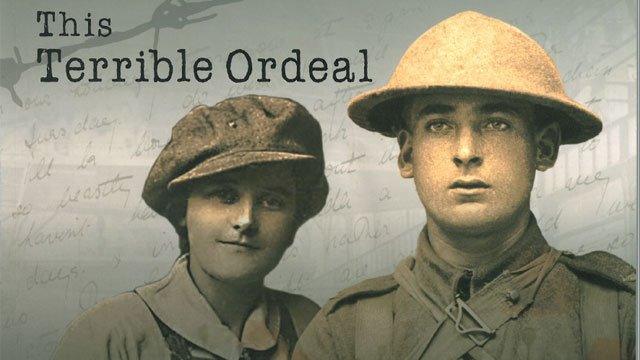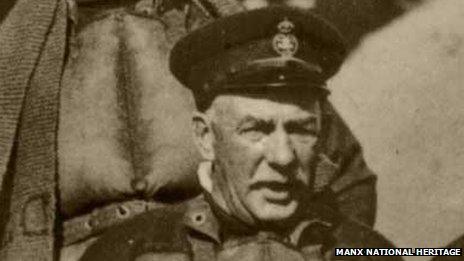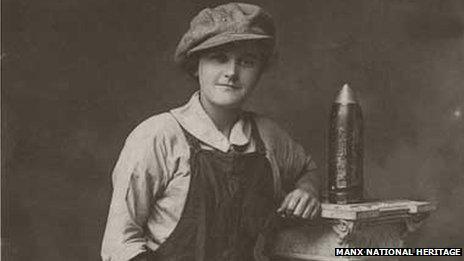Isle of Man book reveals WWI 'untold stories'
- Published

The Terrible Ordeal highlights the Manx contribution to WW1
The Isle of Man's "untold stories" of WWI are to be revealed in a book as part of plans to mark the centenary of the outbreak of the conflict.
This Terrible Ordeal, written by social historian Matthew Richardson, will accompany an exhibition being held at the Manx Museum during 2014.
The book aims to highlight the impact of World War One on the Isle of Man.
Mr Richardson said it showed the islanders' war was "about more than [the] cliché of soldiers in trenches".
He said it contained "previously untold personal stories from men, women and children, alongside letters home from Manx soldiers and sailors".
"Yes, Manx soldiers fought in battles on the Western Front, but Manx sailors also fought in naval battles and most of the Isle of Man Steam Packet company fleet was requisitioned."
Dicky Lee

Dicky Lee was captured by a U-boat
Dicky Lee was a fisherman from Douglas who plied his trade during the war, said Mr Richardson.
"During these years the Irish Sea was the haunt of prowling U-boats, and although they sank many thousands of tons of merchant shipping, they were not above attacking fishermen.
"In 1918, Dicky and his brother were aboard a boat called the Marguerite, they were heading back to Douglas when a U-boat surfaced and stopped them.
"The Manx crew were taken off and the Marguerite was sunk by a bomb but incredibly, the U-boat captain allowed Dicky to keep personal papers, and a pair of navigation lamps," he continued.
The Corlett brothers

The Corlett brothers survived the war
The Corlett brothers from Douglas were both accepted as officers after volunteering to join the army in 1914.
Roy Corlett, who served with the King's Own Yorkshire Light Infantry at the Battle of the Somme, was badly wounded in the knee.
He was subsequently captured before spending two years as a prisoner of war (PoW).
His brother Cyril was medically discharged after being badly wounded at the Battle of Arras in 1917.
Despite this he volunteered for the army a second time and was posted to North Russia, where he was captured in 1919 by the Red Army- he was the last PoW to return home to the Isle of Man from WWI.
May Brew

May Brew left the island for the first time to work in a guns factory
May Brew, the daughter of a hairdresser in Douglas, was one of thousands of British women whose lives changed beyond all recognition during the war years.
At the start of the war, the female role was very much a supporting one but it soon became apparent that women would have to get more actively involved.
Very early on in WWI, May and her sister left the Isle of Man to work at the Coventry Ordnance Works- a British manufacturer of heavy guns.
Away from home for the first time, May and her new-found colleagues began earning good money doing heavy and dangerous jobs previously only open to men.
This Terrible Ordeal: Manx Letters, Diaries and Memories of the Great War will be available at the Manx Museum from 8 November.
A major temporary exhibition marking the 100th anniversary of the outbreak of the war will begin at the museum in February 2014.
- Published30 July 2013
- Published8 November 2012
- Published10 June 2013